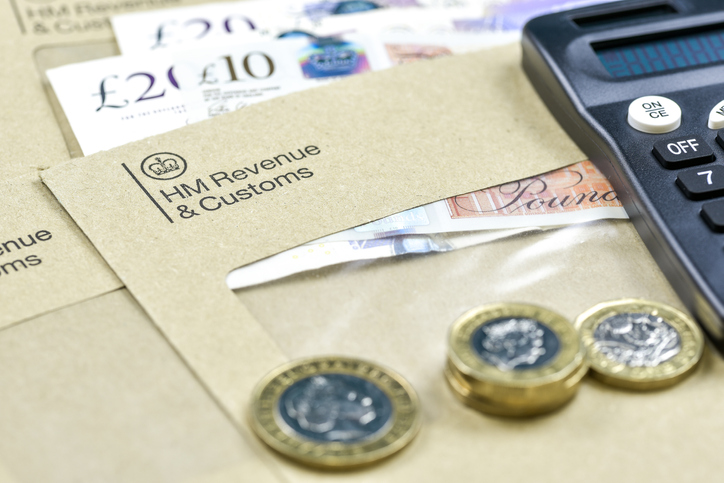As we approach the Autumn Budget 2021, what can we expect from the proposed new Residential Property Developer Tax? Vicky McDonald in our Real Estate team looks at some of the key headlines from the draft legislation.
Early in 2021 the Government announced a plan to introduce a new Residential Property Developer Tax aimed at generating £2billion in a decade, with such sums to be used to remediate unsafe cladding in high-rise buildings following the Grenfell Tower disaster.
In late September the Government published a consultation on the draft legislation, with the Autumn Budget on 27 October set to formally announce its implementation from April 2022.
Who does this proposed new tax affect?
- The proposed new tax will apply to companies within the charge to corporation tax that carry out UK residential property development activities (“RPD activities”)
- Non-profit housing companies by reference to social housing legislation, and wholly owned subsidiary companies of a non-profit housing company, are excluded from being treated as a residential property developer for the purpose of the tax.
What is ‘Residential Property’?
- For the purposes of the tax, ‘residential property’ will mean essentially what it does within the definition used for Stamp Duty Land Tax purposes, but the focus is on whether the building is designed or adapted (instead of used or suitable) for the use as a dwelling.
- Undeveloped land subject to planning permission or where planning permission is being sought will also fall within this definition.
- Amenity land to be provided alongside the residential property is also considered to be residential property for the purposes of this tax.
- The draft legislation excludes certain types of communal dwellings including hotels, care/residential homes, hospitals, prisons and student accommodation.
What are RPD activities?
- RPD activities are defined widely as activities carried on by a residential property developer that meet two tests:
- they must be in connection with UK land in which the developer has (or had) an interest
- they must be for the purposes of (or in connection with) the development of residential property
- The explanatory note to the draft legislation contains a non-exclusive list of the activities that are typically carried out during residential property development. These include not only dealing in, designing, constructing or adapting residential property but also seeking planning permission in relation to it, marketing it and managing it (as well as any activities ancillary to any of these activities).
What counts as an ‘interest in land’?
- The draft legislation contains a wide definition of what amounts to an ‘interest in land’ and includes circumstances where a developer has or had a beneficial interest in the land and that interest is held as stock for its trade.
- A company is deemed to hold an interest in land if it is held by any related company.
- A company is considered to be related if they are members of the same group of companies or they are connected by a common interest in a joint venture company.
- A joint venture company will be taken into account where the residential property developer holds a 10% or greater interest in that joint venture company.
- A mortgagor or a person holding a licence to occupy or use will be excluded from this tax.
Is there an exempt Allowance?
- The initial consultation on this tax mentioned an allowance of £25 million per year but the draft legislation does not contain a specific figure. It is anticipated that the level of any allowance will be announced as part of the Autumn Budget on 27 October.
- Only profits that exceed any such allowance will be subject to the tax.
- Where an accounting period is less than a year, the allowance will be reduced on a pro rata basis
Accounting Periods and Reporting
- The tax will apply for accounting periods that end on or after 1 April 2022
- If a residential property developer’s accounting period straddles the proposed commencement date of 1 April 2022 then the period before this date is treated as a separate accounting period and the tax will only be chargeable in respect of profits calculated for the period from 1 April 2022
- The tax on profits above any allowance is to be charged as if it were an amount of corporation tax, and the provisions for management, administration and payment of corporation tax are to apply to this new tax with some modifications. These include a requirement to notify HMRC of any payment made (wholly or partly) in respect of a sum chargeable as Residential Property Development Tax. This is so that HMRC are able to keep a record of receipts attributable to this new tax.
What is the level of tax?
- As yet the level of tax that will be charged on profits is unknown but we can expect an announcement in the upcoming Autumn Budget.
- Nevertheless, the profits of a residential property developer will be calculated by essentially adding together a company’s adjusted trading profits (or losses) together with its joint venture profits (or losses) and then allowing deductions for loss relief, group relief and carried forward group relief.
- Any profits, losses and capital allowances that do not relate to residential property development activity will be ignored.
Following representations made by the British Property Federation following the publication of this draft legislation, the Government has now appeared to suggest that Build-to-Rent developers will also be excluded from the remit of this new tax, on the basis that they are already paying the full cost of any repair work to the homes they have built, given the lack of any legal recourse to pass these costs on to tenants.
Whilst we will have to wait for the final details in the Budget, it remains to be seen how this new tax may affect residential developers and their proposed schemes, particularly as this new tax will be introduced alongside the new Health and Social Care Levy.

